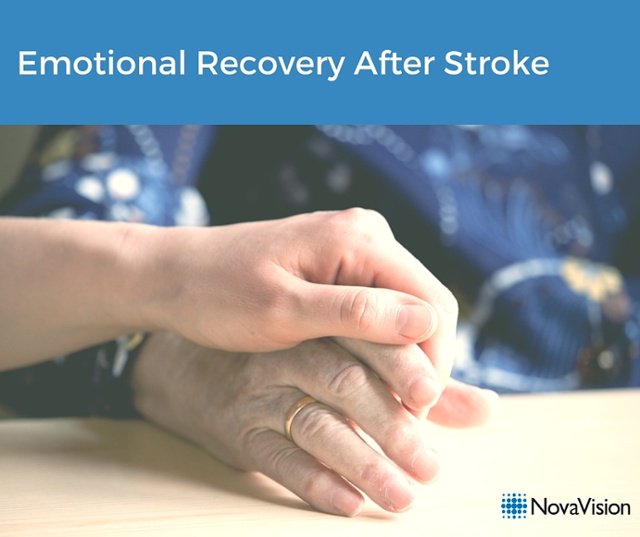Emotional After Stroke? Understanding Depression, Anxiety & How to Cope
Share IT

Launch Your Dream Website with Us!
Click Here to Get in touch with Us.
Categories
Emotional Problems After Stroke
The Invisible Scars: The Psychological and Emotional Aftereffects of Strokes (Adjustment Disorders, Anxiety, and Depression)
Stroke is a major cause of impairment that affects a person’s capacity to function physically as well as emotionally and psychologically. Numerous stroke patients struggle with a variety of emotional issues, such as anxiety, sadness, and adjustment difficulties. Acknowledging these ailments and pursuing suitable assistance is essential for a comprehensive healing procedure.
Thank you for reading this post, don't forget to subscribe!Table of Contents

Why Is Emotional Health Affected by Strokes?
Emotional Problems After Stroke
A stroke can result in emotional problems for a number of reasons:
Brain damage: Emotion processing and mood regulation may be directly impacted by damage to particular brain regions.
Physical limitations: Dissatisfaction, low self-esteem, and social isolation can result from changes in appearance, loss of movement, and dependency on others.
Fear and uncertainty: Worry and anxiety can be brought on by worries about the future, the possibility of another stroke, and the unknown.
Personality changes: A stroke may result in irritation or apathy, which can affect how people interact with others and in relationships.
Typical Psychological and Emotional Difficulties Following Stroke
Emotional Problems After Stroke
- Depression: the most frequent emotional side effect of stroke, characterized by depressive symptoms, interest loss in activities, changes in eating or sleep patterns, and a forlorn sensation.
- Anxiety: People who have survived a stroke may suffer from anxiety that causes them to worry all the time, fear falling, or have trouble focusing.
- Post-traumatic stress disorder (PTSD): A stroke can occasionally be a traumatic experience that results in nightmares, flashbacks, and avoidance behaviors.
- Social anxiety: Social disengagement and isolation may result from worries about physical restrictions or communication problems.
- Adjustment disorders: Emotional anguish and behavioral issues may arise from a person’s inability to adapt to the physical and social changes brought on by a stroke.
Effect on Recuperation and Life Quality
Emotional Problems After Stroke
Psychological and emotional difficulties can impede the course of rehabilitation by:
- reduction in rehabilitation involvement and motivation.
- limiting one’s capacity for making decisions and addressing problems.
- Physical problems are getting worse and weariness is rising.
- limiting interactions with caretakers and family.
- decreasing general well-being and quality of life.
Identifying the Symptoms and Getting Assistance
Emotional Problems After Stroke
Following a stroke, it’s critical to recognize and treat emotional and psychological issues as soon as possible. Here are a few indicators to be aware of:
- alterations in behavior or mood
- Loss of enthusiasm for once-enjoyed activities
- Inability to fall asleep or changes in appetite
- Continuous anxiety or fear
- Avoiding social situations
Emotional Problems After Stroke
It’s imperative to get professional assistance if you observe these symptoms in a stroke survivor or yourself. A physician or mental health specialist can do an appropriate assessment and make therapy recommendations.
Strategies for Treating Emotional and Psychological Issues
- Psychotherapy: Individuals can address harmful thought patterns, learn coping techniques, and comprehend their feelings through therapy sessions.
- Medication: Depending on the particular issue, doctors may give antidepressants or anxiety drugs.
- Support groups: Making new friends who have experienced a stroke can give you a sense of belonging and common ground.
- Stress reduction strategies: Deep breathing exercises and meditation are examples of relaxation strategies that can be used to reduce anxiety.
- Family involvement: Fostering a supportive and upbeat environment for rehabilitation can be achieved through educating and assisting caregivers.
In summary: Getting Help and Developing Resilience
Emotional Problems After Stroke
After a stroke, emotional and psychological difficulties are a common but controllable occurrence. Never be afraid to ask for assistance if you or a loved one needs it. Through recognition of these difficulties, participation in suitable therapy, and development of self-care techniques to foster resilience, stroke survivors can effectively manage their psychological journey and attain a more satisfying and optimistic perspective on life. Recovering is a multifaceted process, keep that in mind. After a stroke, taking care of one’s physical and mental health is crucial to living a fulfilling life.

Launch Your Dream Website with Us!
Click Here to Get in touch with Us.





























































Recent Comments